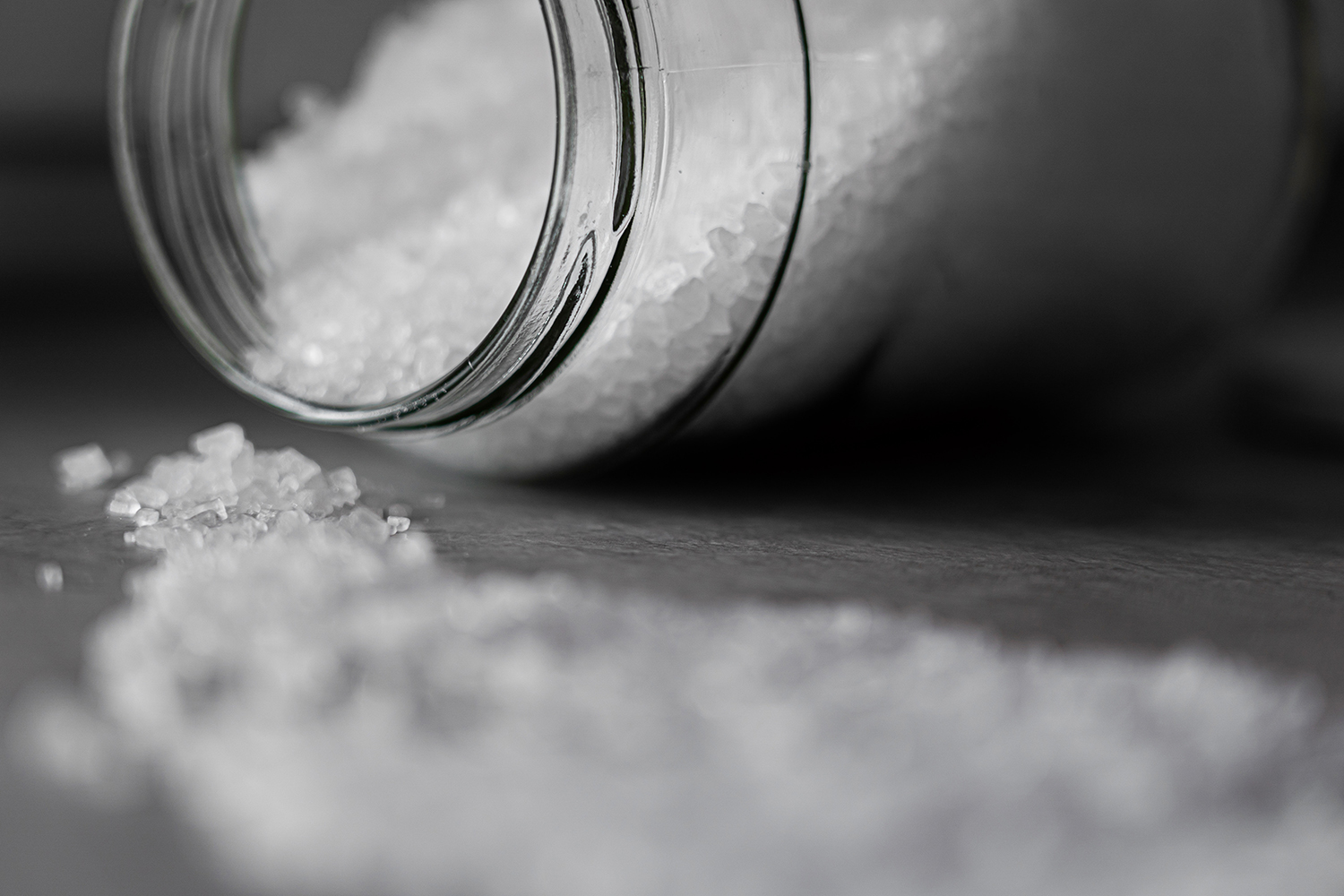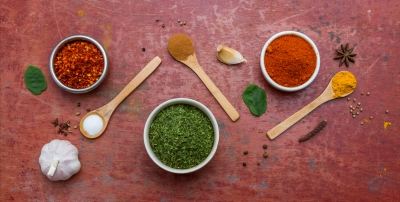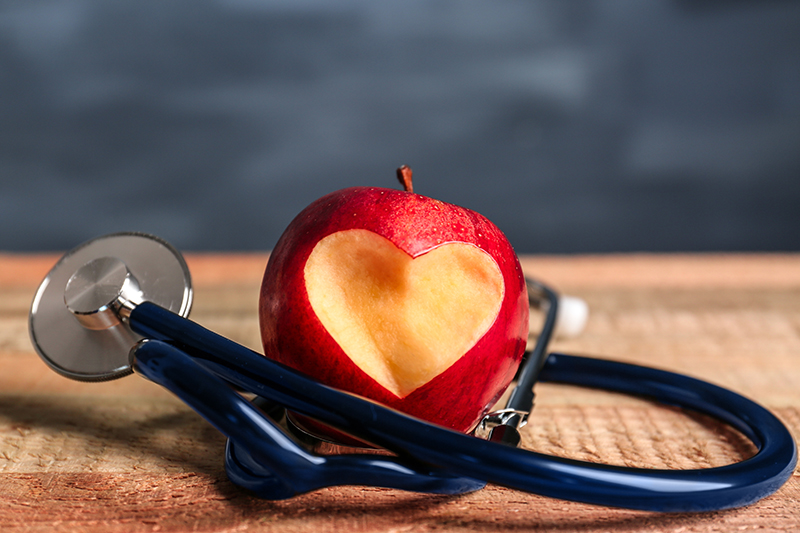The Tricky Relationship Between Salt And Your Heart
Contributed by Ryan Peterson.

Salt is used in most cooking recipes and forms a large part of the modern diet. However, there have long been discussions over the need for it in our bodies. Salt, or sodium, can interact with our internal system in a multitude of ways. As a consequence, it has an impact on our overall heart health.
More to the point, what sort of impact does it have? Most of us have grown up knowing salt is bad for us and can lead to health problems. But, is this truly the case?
What is salt?
Salt (sodium) is a mineral that’s vital for the function of the human body. Our bodies use sodium to maintain healthy nerve functions, as well as to keep our body’s fluid levels balanced. In fact, when you feel dehydrated, it’s recommended that you add some salt to your water as it can help hydrate you by replenishing electrolyte stores. Salt is also suggested for anyone suffering from muscle cramps as a lack of it in the system can lead to excessive muscle cramping.
Consequently, you can argue that salt is an essential nutrient our bodies need. Cutting salt out of your diet is not a healthy decision as it can cause a variety of ongoing health problems.
Continue reading10 Heart Healthy Cooking Tips
 With some heart healthy cooking, you can still enjoy delicious meals on a heart healthy diet. Plus, you don’t have to follow some strict “diet”. Many times you just need to tweak what you are already eating.
With some heart healthy cooking, you can still enjoy delicious meals on a heart healthy diet. Plus, you don’t have to follow some strict “diet”. Many times you just need to tweak what you are already eating.
Here are 10 tips for heart healthy cooking.
#1 Replace processed grains with whole grains
This involves more than just switching to whole grain bread. Select whole-wheat flour, whole cornmeal, quinoa, and oatmeal to boost fiber intake. Also, look at the pasta and rice your purchase. Select whole grain pasta and brown rice for heart health. Some whole grain products take a little bit longer to prepare than their processed counterparts. Keep this in mind as you make the switch.
#2 Eliminate salt and watch for hidden sodium sources
Many canned and processed foods are high in added sodium. Read labels and select options that have “No Added Salt”. You can also reduce sodium content of canned vegetables by rinsing them in cold water prior to preparing. Take the salt shaker off the table to break a habit of salting your foods before you even try them.
#3 Eat more fruits and vegetables
Prepare well balanced meals that include plenty of fruits and vegetables. Every meal should have a fruit and/or vegetable and it’s okay to eat more than one serving. The DASH (Dietary Approaches to Stop Hypertension) Diet recommends 4-5 vegetables each day AND 4-5 servings of fruit daily.
#4 Use nonfat yogurt in place of sour cream Continue reading
Better than Takeout: Frugal Asian Feasts for Vegans to Cook
This is a guest post provided by Elizabeth Baker. Elizabeth is on FrugalDad team, providing insights on frugality and savings. Her area of focus and interest deals with the intersection of food and frugality. She’s always asking the question, “how do I make healthy eating decisions without spending an arm and a leg?”
In this particular article Elizabeth discusses Asian foods and recipes. A word of caution if you deal with high blood pressure. . . Asian dishes can be high in sodium. For example, soy sauce contains 1006 mg of sodium per Tbsp. You may have to do some recipe modifications.
The following is the article provided by Elizabeth.
It’s always tough finding new meals to try as a vegan. Even worse, if you’re looking for food to cook that is both ethnic and vegan-friendly, you may just think you’re out of luck. Before you head to the nearest restaurant, however, remember that there are plenty of meals you can cook in the comfort of your own house for a fraction of the price. If you plan ahead, and look ahead for some online grocery discounts, you can enjoy some of these cheap and delicious Asian feasts to try making yourself.
Vegetable Fried Rice
5 Steps to Achieve a Healthy Heart

You don’t have to begin a drastic diet in order to achieve your heart health goals. Big results can be achieved by improving your daily habits one step at a time.
Here are 5 steps you can implement now for a healthy heart:
Step 1 – Add fruits and vegetables to your daily diet
That’s right, I’m not telling you to eliminate a food, but to add foods. Fruits and vegetables are essential. Add fruit and/or vegetable to every meal or snack to boost your intake of this necessary food group. It’s estimated that our intake of vegetables is usually only 59% of what it should be and fruit only 42%.
Step 2 – Switch processed grains for whole grains
Continue reading
High Dietary Salt Equals High Blood Pressure
 Earlier this month (February 2012), the Centers for Disease Control and Prevention (CDC) released a report showing that nine out of ten adults eat too much salt daily.
Earlier this month (February 2012), the Centers for Disease Control and Prevention (CDC) released a report showing that nine out of ten adults eat too much salt daily.
This excess salt is not the salt you are adding with the salt shaker. The high salt diet comes from processed foods and restaurant meals.
A diet high in sodium (salt) leads to high blood pressure. This equals an increased risk for developing heart disease and having a stroke.
According to CDC director Dr. Thomas Frieden, heart disease and strokes are responsible for the deaths of more than 800,000 Americans annually and add approximately $273 BILLION dollars to health care costs.
The U.S. Dietary Guidelines recommend salt be limited to no more than 2300 milligrams per day. This recommendation may be even lower (no more than 1500 milligrams per day) depending on your ethnicity, age, and medical history.
The average adult in the U.S. consumes more than 3300 milligrams of salt each day.
10 Foods Contributing the Most Sodium
Continue reading
What May Cause High Blood Pressure?
There are times when it is normal for the heart to beat harder, such as if you are out hiking and encounter a bear. Your blood pressure will jump so larger levels of oxygenated, nutrient-rich blood is sent through your system and you are able to react. All part of the flight or fight response.
When you are diagnosed with high blood pressure your blood pressure is not just high for limited periods of time. It is consistently elevated. This means the heart is constantly working harder than it should.
Here are 7 reasons your heart may be dealing with this increased workload:
1. Atherosclerosis (narrowing of the arteries) – This may be caused by cholesterol deposits along arterial walls resulting in plaque buildup. Fibrosis or endothelial dysfunction may also result in narrower arteries.
When arteries narrow the heart has to pump harder (exert more force) to move blood throughout the system.
Continue reading


